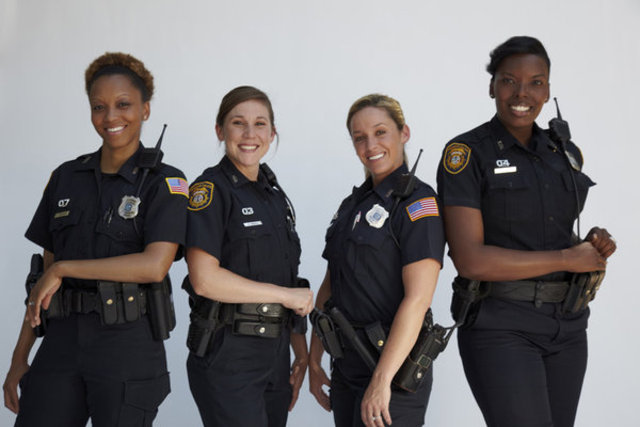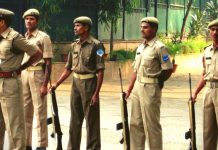This article is written by Shivani Panda from Amity Law School, Delhi. Here she details the role of women in the police organisation and the problems they face due to gender bias.
Table of Contents
Introduction
Our society is feudal or semi-feudal, where the gender roles are perfectly demarcated. However, with changing times and needs, that line is blurred and the gender roles are sometimes reversed. Violence against women, child abuse, crimes against children and juveniles, motivated women to contribute to the criminal justice system. Women’s contribution to wars is also pivotal, and they are many times the front face of revolutions. They played a fundamental role in the World Wars and during the independence of India. Infact, recently in India women were at the forefront of the huge Anti-CAA protests at Shaheen Bagh. But society’s expectation from females to fulfil their ‘feminine’ duties never stopped. In this paper, the author discusses the effect of the involvement of females in the police forces and analyses the problems faced by them in a typically male-dominated field.
Myths About women in the police organisation
The role of women in the criminal justice system and armed forces has been negligible until the late 20th century in almost every country. The appointment of females in a traditionally male-dominated field has led to various conflicts in society as well as in the police department. It is the reason behind the myths surrounding women in the police workforce. Their abilities are often undermined. They are also forced to prove their worth and work better than their male colleagues to get respect. Moreover, a police person does not respect or take senior female police officers seriously, who is leading them in a case or investigation. Society’s distrust towards female police persons makes it even more difficult for them to work in an already hostile work environment. Females are expected to balance all their roles and perform them to perfection, that is, along with working in a male-dominated area, they cannot be led astray from their traditional feminine duties, such as cooking, taking care of the children, and striking a balance between all family members.
Thus, in an occupation where overtime and steady commitment is required, it is believed that female police persons will give personal conflicts more importance, making them incompetent and unreliable. They are also considered too sensitive or weak to be working in an area that requires such physical and mental strain, however, their ‘sensitivity’ can defuse those situations that cannot be solved through aggression. Sometimes it is argued that women’s decision-making skills are affected due to hormonal changes and mood swings during menstruation or pregnancy. Moreover, it is contended that women in this field are more likely to be sexually harassed, and that if a person cannot protect themselves from violence, how are they going to protect the members of the society?
Gender role stereotyping and harassment
Gender role stereotyping and harassment is a common obstacle faced by women as males are still of the view that women are not competent to work in an environment that requires aggression and strength. As a result, it was found that there is an unequal representation of women in the frontline, but are over-represented in the administrative section of the police organisation. The reasons and result of such stereotypes are enumerated below:
Mentors
A person needs to have someone with more experience to seek advice, guidance, and encouragement for a successful career. A Mentor-mentee relationship is required to work in a police organisation, where simple training is not enough, and quick decision-making and intuition play a fundamental role. Mentoring has two broad functions, one that deals with coaching and career advancement, and another that enhances social networks. However, with the gender bias prevalent in the police organisation, it is difficult for women to find a mentor. In fact, for that very reason, women as mentors are a rare occurrence, either because there is a lack of experienced women working at the frontline or the policemen do not want to be guided by the women police persons.
Social networking
Formal and informal social networks are another source of emotional support and information sharing. Most of the time, men shun women from their social sphere. With the dearth of women in the organisation, they are confined to only a particular social group without many members. Moreover, it is often seen that women work better in a group as opposed to men who prefer individualism, resulting in low performance of women without social networks.
Lack of support
Often women are not supported by society or by the organisation when they choose a male-oriented profession. The police organisation sometimes lacks resources, such as washrooms or sanitary products supporting women. Moreover, women-specific provisions such as marital leaves are generally not welcomed by their male colleagues. It can increase role strain and exaggerate the effects of other environmental or external barriers.
Media portrayal
Due to the minority status of women in the senior position, their lives are also subject to unrequited attention and stress that creates pressure on women to perform without committing any mistakes. This kind of pressure is relatively less on policemen since most of the senior posts in the police organisation are filled by male police officers.
Psychological factors
Self-efficacy, low outcome expectations, and self-esteem consist of psychological factors that affect the performance of a task. Self-efficacy reflects an individual’s understanding of the set of skills that he or she can offer in a group setting. The reason behind low self-efficacy could be poor performance or bad past experiences and the social environment that is the cause of those incidents. In the police departments, where the work of women is constantly scrutinized and criticised, the women develop a low self-efficacy. Secondly, low outcome expectations are also a cause of the poor work environment, where males and females doing the same work with the same resources and efficiency many times do not receive the same outcome. It results in low outcome expectations among women. These factors further lead to self-esteem issues.
Women’s Performance and Growth in Policing
There has been controversy about whether women’s policing style is similar or different from their male counterparts. Some scholars say it differs; some say it does not. However, it has been observed worldwide that appointment of female police officers has helped in certain situations that male police officers fail to resolve many times. Further, there is an increase in the employment of female police officers due to their performance in the field. It has been discussed in detail below:
Promoting progress for women in policing
Various committees have been constituted to promote progress and create a friendly work environment. However, with growing and progressing women through the ranks, it is also a bitter truth that women face gender discrimination and sexual harassment, with very few mentoring programs to support them. The committees to protect and promote women police officers are constituted only on papers, and no real work is done for them.
Contribution of women to the police organization
The inclusion of women officers in the police department led to diversity. The incidences of gender abuse and custodial violence would decrease, as women are less likely to use force in a grave situation and still be able to resolve the problem. Moreover, several legal and cultural obstacles to women in policing were removed. With their ability to work in a group and communicate better, there has been an increase in harmony among the colleagues. Further, with their ability to handle sensitive issues revolving around women and children, created a specific department where only women officers are required. It has been reported that there is an increase in the reporting of domestic violence and sexual harassment cases when women are handling the case.
Mass media
Mass media has played a crucial role in improving the image of women in the police organization. Media outlets highlighting their success, or various shows and movies with female police officers and detectives on lead has helped women rise on top. It also encourages the officers to work better and helps remove the bias of male officers against women to some extent.
Status of Women Police in India
Fair representation and diversity positively in policing has positive impacts on the department as well as on the society. It helps the minority of the country to trust the police personnel. Further, police organisations and armed forces are mandated to eliminate discrimination against women and ensure equality between men and women. It is bound to guarantee the fundamental rights enshrined in the Constitution of India. Article 14 enshrines the right to equality before the law and emphasize non-discrimination between the citizens of the country. Secondly, under Article 15, the State is allowed to make special provisions for vulnerable groups such as women and children. Lastly, Article 16 mandates the State to provide equal opportunity in matters of public employment, such as the police institutions, and to rectify the disadvantages that curtail women. Further, being a signatory to Universal Declaration of Human Rights (UDHR), the International Covenant on Civil and Political Rights (ICCPR), the Convention on the Elimination of all Forms of Discrimination Against Women (CEDAW) and several other conventions and treaties, India is obligated to ensure ‘principle of equity’ in its full spirit. Thus, to implement the above constitutional rights and UN Conventions, various initiatives have been taken by the Government. Following steps are taken to improve the image of the police and make the institution a gender-sensitive place:
- In 2009, the Ministry of Home Affairs (MHA) laid down the 33% benchmark for women’s representation in the police. Moreover, the Union Territories and nine states have adopted the 33% reservation, Bihar 38%, five states 30%, and the other five states have less than 30% reservation. Nine states have not set a target yet.
- In 2013, the MHA recommended each police station to have at least three female Sub-Inspectors and ten female police Constables.
- In 2015, the Ministry proposed creating Investigative Units for Crimes Against Women (IUCAW) at crime-prone districts across states, which must have 15 specialised investigators, one-third of which required to be women. Further, all the investigations regarding women related issues are to be conducted by female police persons in all the states.
However, these initiatives and the targets are just on papers. As per government data, female police persons only constitute 7.28% of the total force as on January 1, 2017. Some states have fared better like, Tamil Nadu at 15.97%, Himachal Pradesh at 12.25%, and Maharashtra at 11.62%. But Assam, Uttar Pradesh, and Bihar at 5%, still have a long way to go. Moreover, less than 1% of policewomen in India occupy senior ranks and almost 90% of them serve as constables. While the numbers have improved in this decade, from 3.89% in 2007 to 7.28% in 2017, it is not enough.
Challenges within the Police Profession in India
Gender Discrimination
Policing and armed forces are a few male-dominated institutions, where women have to go extra miles to get respect. In this organisation, women are generally not given any mainstream police tasks and are typically relegated to desk jobs that shield them from frontline policing. Jharkhand’s state police manual had stated that women police persons shall not be substituted for male police and should be appointed tasks that they alone can perform better. Women generally perform tasks like escorting female prisoners, helping male police in the investigation that concerns female victims or watches duty of female suspects. Tasks like these are undoubtedly performed better by women, but this way they are only confined to specific jobs such as these and are never exposed to the frontline jobs.
Sexual Harassment
Sexual harassment in any field of job is rampant, including police organisations. It induces physical and mental stress, which leads to job dissatisfaction and depression. In April 2011, at least eleven women were allegedly sexually exploited by the trainers in the training school, which was revealed during a routine medical test. Similar cases were reported in Jhansi, Delhi, and Bhopal. Female policewomen generally do not report sexual harassment, as they are either suspended or, their account is discredited. Moreover, they believe that their male counterparts at work would see them as weak and vulnerable.
Biases of Male Police Personnel
Policemen most of the times undermine the capabilities of female police personnel and do not accept them as equal professional colleagues even when they have the same work profile and responsibility. It is considered that females lack the physical stamina or mental skills to deal with a situation. Well-experienced and qualified women also face the same prejudices. Moreover, the male subordinates in a female-led team do not coordinate and often neglect the instructions given to them.
Employment Problems
It is often seen that despite reservations and advertisements of vacancies for women constables, they go unfilled because they do not apply for the position. This phenomenon is rampant in Andhra Pradesh, Rajasthan, Haryana, and Assam. The reason is the gender bias and discrimination they face in the workplace, or that they believe they cannot strike a balance between their professional and personal life.
Recommendations
Despite the continued presence of these issues, no government has attempted to conceptualise a comprehensive policy to make the police service more inclusive in real sense. Moreover, merely creating policies that promise a certain target of a reservation does not ensure that women are actually recruited and promoted. Thus, steps shall be taken towards the implementation of policy laid down by the MHA. In addition to that, the government should consider to include the following recommendations in their policy:
- Family-friendly policies must be formulated to help female police officers balance their personal and professional life. Those policies may incorporate paid marital leave, child-care and medical insurances. Further, sanitary products in the workplace is also a great initiative.
- The policies should also include educational programs for both males and females and organize seminars where the problems faced by them would be addressed and solved. It should not only be conducted in police departments but also in schools and colleges that will encourage females to take up a job in a police organization.
- Employment of women in both administrative, as well as service sections of police departments, will remove the stereotypes attached to their gender. Appointing women only for tokenism and restricting them only to the administration department undervalues their abilities.
- Sexual harassment and rape cases within the police department should be strictly dealt with. Steps should be taken to create a safe space for women to report such cases against their colleagues and seniors without any complications. A separate department should be established for police stations and training centres of each jurisdiction where such complaints can be filed and speedy investigation takes place.
- Expanding the opportunities for mentoring may also assist female officers to gain knowledge and contacts that will be helpful for their career development. Formal mentoring schemes that actively facilitate the development of professional relationships between higher-ranking males and females with their subordinates would be beneficial and will help bridge the gaps between the seniors and subordinates.
- Lastly, various recommendations are provided by MHA to assist the management of diversity in the police department. That will facilitate training in diversity and equal opportunity for all the staff. Further, professional development opportunities must be made more accessible to assist women in career advancement.
Conclusion
Although women have managed to gain entry into the police services, they continue to face numerous forms of resistance, as was discussed above in detail. They have to tolerate various obstacles, which their male counterparts never undergo. Thus, it is pivotal to develop a wholesome police system for all genders and appreciate the role of females in creating it, which will help towards the betterment of society.
References
LawSikho has created a telegram group for exchanging legal knowledge, referrals and various opportunities. You can click on this link and join:
 Serato DJ Crack 2025Serato DJ PRO Crack
Serato DJ Crack 2025Serato DJ PRO Crack











 Allow notifications
Allow notifications


